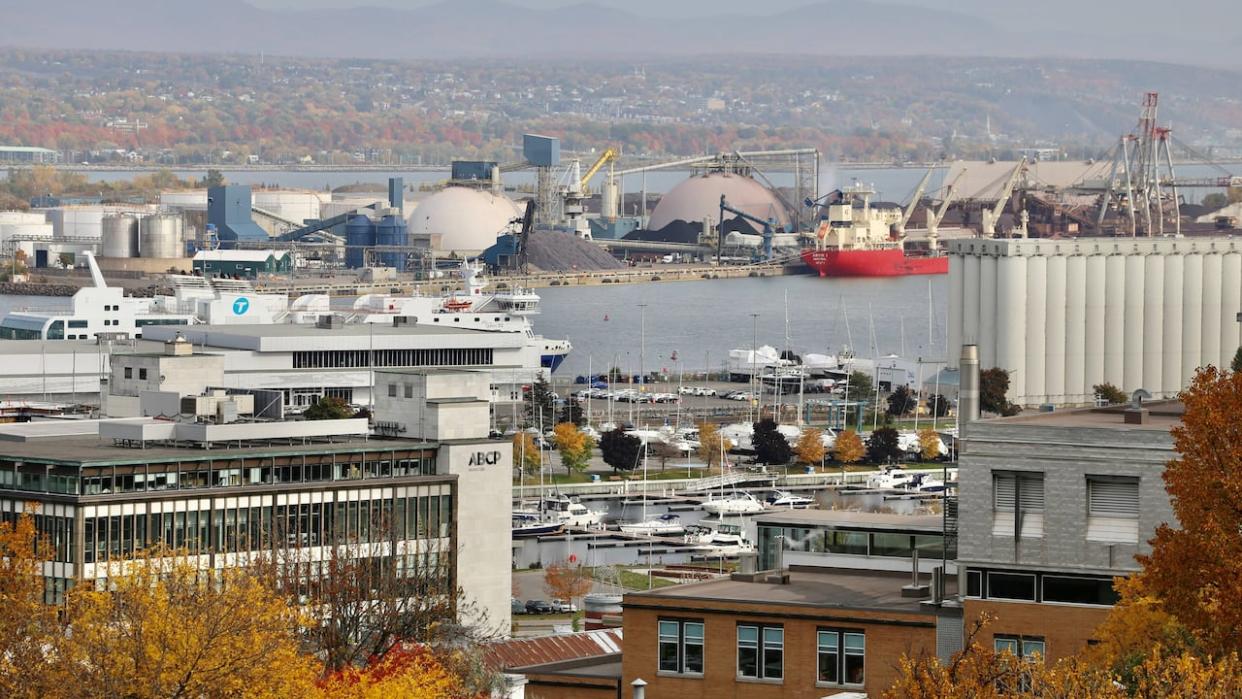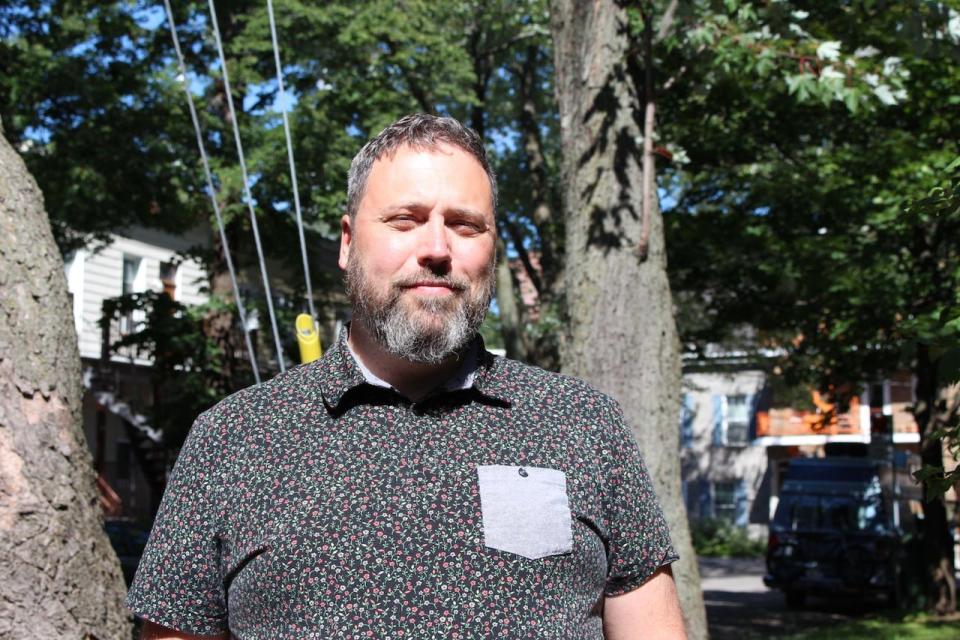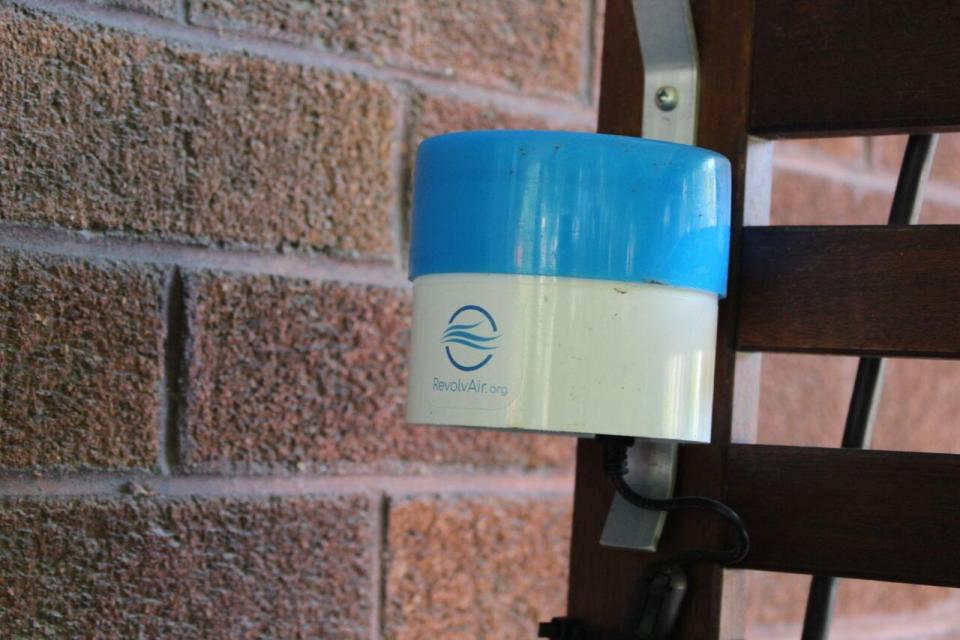Quebec City neighbourhood of Vieux-Limoilou still seeing excessive amounts of nickel in the air

Weeks after authorities announced that air quality was improving in Quebec City, new data shows the level of air-borne nickel in the neighbourhood of Vieux-Limoilou is still often above government health standards, something local representatives are describing as "unacceptable laxity."
"We're told that the problems are being solved and that things are getting better, but in the end the limits are still being exceeded," said Raymond Poirier, president of the Vieux-Limoilou neighbourhood council.
"Despite all the investments and efforts, the results we're being promised by the port authority, among others, are clearly not happening."
Just a few days after the end of the Quebec City's air quality testing campaign, the station on des Sables Road measured 120 nanograms of nickel per cubic metre of air — well above the new, more permissive provincial standard of 70 nanograms.
The limit was exceeded on two other occasions up to April 28, 2023, the last date for which data is available.
"The environment minister has relaxed his standards and he still can't enforce them," said Sol Zanetti, the local Québec Solidaire MNA. He is calling on the government to crack down on those responsible — to deter others from exceeding the emission limits.
"What happened was not sanctioned. It's very likely that bad practices were allowed to continue over the summer," he said.
Catering to the battery industry
Zanetti says the government is siding with the port and the multinationals using it.
"The [Coalition Avenir Québec government] has decided to sacrifice people's health by bowing to the blackmail arguments of multinationals who want to spend as little as possible to comply with rules," said Zanetti.
The nickel emission level was relaxed by the CAQ government in 2020. Originally at 14 nanograms per cubic metre, it was raised to 70 in a move to appeal to the nickel-based battery industry.
For Québec Solidaire, the fact that even this new, laxer standard can't be effectivelly enforced is a sign that the government is prioritizing the economy over the health of local residents.
"It's unacceptable, we don't have to choose between the battery industry and the environment, we can do both. We don't have to choose between the health of the world and job creation. It's 2023, we have to do both," said party spokesperson Gabriel Nadeau-Dubois.
"Someone at the Environment Ministry must have seen this data. How is it that we're making a news release as if everything's fine, when we know that, since December, three times we've jeopardized the health of people in the Quebec City region?" wonders Nadeau-Dubois.

Raymond Poirier says residents of Vieux-Limoilou should have access to data about their air quality. (Franca Mignacca/CBC)
Environment Minister Benoit Charette says cleaner air in Limoilou is within reach.
"Independent reports confirm that air quality is improving, and all stakeholders are mobilized to ensure that it continues to improve," he told Radio-Canada.
He said the situation is being closely monitored and port facilities are being visited by his ministry.
"Control measures will be applied, so if indeed it should be required, sanctions could be applied," said Charette.
However, the president of the Vieux-Limoilou district council no longer has much confidence in the good faith of those involved in this case. Last year, Poirier started a citizen-led scientific program called Limoilair to monitor emissions.
"We have the impression that we're being laughed at. There are players in the port authority who tell us that everything is fine, and who, year after year, come back with events like this one," Poirier said.
City urged to distance itself
On the municipal side, the opposition parties are equally indignant.
"The citizens of Limoilou are really being taken for fools," said Patrick Paquet, leader of Équipe priorité Québec.
"We held a nice news conference two weeks ago to say that everything is fine and that we're moving in the right direction, and then we don't give them this data."
The leader of Québec d'abord, Claude Villeneuve, is also wary of the fact that no one was informed before the news conference.

Poirier has installed air quality monitoring stations in Quebec City's Limoilou neighbourhood, which show high levels of nickel. (Franca Mignacca/CBC)
"The few initiatives the mayor has put forward have not provided citizens with reliable, accessible information. It's all a bit of a smokescreen," he said.
The leader of Quebec City's Official Opposition would like to see the municipal administration distance itself from the Quebec government on this issue.
"We don't think the city can continue to endorse the way the Ministry of the Environment is monitoring the situation at the Port of Quebec," said Villeneuve.
Keeping citizens informed
For Zanetti and Poirier, the need to make air quality data more accessible to Limoilou residents is critical.
"If the information didn't reach them, let's imagine the residents. Why didn't they know about it? Why did they present us with results and tell us that there were improvements, not knowing that three days later there was a first exceedance?" Poirier pointed out.
Zanetti is also calling for real-time data to be made available, so that the government can crack down more effectively.
"That should be a priority for the Environment Ministry. It's not true that out of a budget of about $120 billion in Quebec, we don't have the means to know what's going on and what we're breathing, and to punish polluters as soon as it happens," he said.


